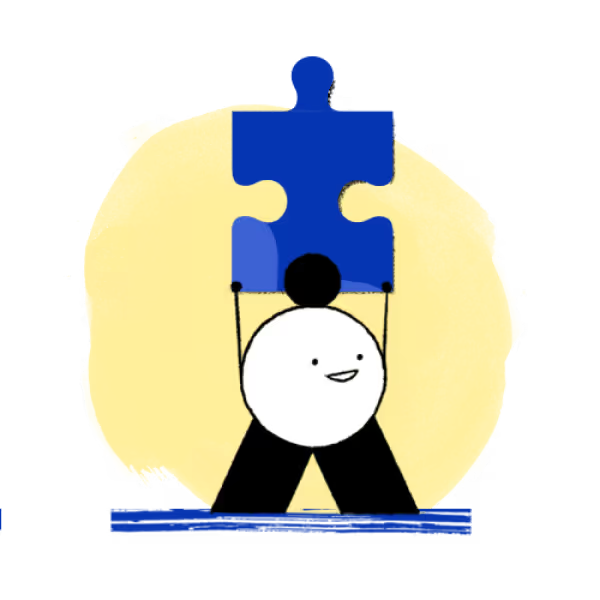Solutions
Customer Support
Resources


This is a chapter from issue #3 of our community-led publication, The Bundle. Download The Bundle for need-to-know insights from legal and business leaders at Pollen, Omnipresent, Liberis, and more.
We dive into the journeys made by lawyers who embarked on the entrepreneurial path to becoming CEOs, with: Mary Bonsor, CEO and co-founder of Flex Legal; Julia Salasky, CEO and co-founder of Legl; and Janvi Patel, previously chairwoman and co-founder, Halebury.
How does a role in private practice, or in-house legal, prepare you for the challenges and experiences of being an entrepreneurial leader? Navigate through our three interviews to find out.
And if you're looking for your next career move, check out our General Counsel jobs board for the latest in-house legal roles at scaling companies.
Mary Bonsor is the CEO and co-founder of Flex Legal, an online platform that helps recruit temporary paralegals and temporary lawyers.
Slowly! I took the ‘classic lawyer’ route, and was really risk-averse with my decisions. I mulled the idea over for four years and actually identified the value of a service like Flex Legal during my time as a lawyer. I was a paralegal at Freshfields, where I found the process of hiring paralegals quite archaic.
We interviewed 30 people with tech backgrounds, and they were all promising the world. They claimed they could build an app in less than a month. James was the only one who came to the interview and said that:
It was a refreshing approach, and one that we loved.
I don’t think you know what skills you have when you start this journey; you learn along the way. But I did find that my role as a litigator set me up for success as a founder. As a litigator you’re constantly firing things off and juggling several cases at once - which really helps in a founder role, where you have to make quick decisions and spin several plates at once.
Prove your idea. Don’t look at how your concept will take flight once you have the tech in place - technology should be the last thing you implement. For example, with Flex I had a spreadsheet of paralegal names, and I had placed five paralegals before James had even joined. I had proved my idea was viable, and that made it easier to get investment.
Mary Bonsor is the CEO and co-founder of Flex Legal. Up next, you'll hear from Julia Salasky, CEO and co-founder of Legl.
Julia Salasky is the CEO and co-founder of Legl, a leading data and operations platform for law firms.

Each time it’s been based on a problem I thought was worth solving. I left Linklaters to work at the UN Commission on International Trade Law. There I worked on a global project to try to make solving disputes online easier.
That really got me thinking about the underlying problem: how do we ensure more people have access to legal services? CrowdJustice, my first company, was born out of trying to answer that question.
Through the success of CrowdJustice, where we have hundreds of law firm users, I noticed a different problem: the lack of digital processes for law firms’ own business operations. And that’s how Legl, a platform that provides better digital operational tools for law firms, was born.
The core skills that I think a startup CEO needs are around being agile, using data to make decisions, and how to grow, build and manage teams. Quite honestly, these are quite different from the skills and the part of my brain that I used to exercise as a lawyer. But there’s a better understanding in the legal industry now, around design thinking and legal software, so perhaps that’s changing.
I’d really push on someone’s commitment, not just to starting a business but to the passion you have for your idea. Starting a business has intense highs and lows, and is a long-term commitment.
Is this an idea you want to spend the next 10 years of your life pursuing? Is this something where you’re willing to run into a wall for? But if that doesn’t faze you, my advice would be – take the plunge. The biggest hurdle to overcome is getting started.
Julia Salasky is the CEO and co-founder of Legl. Our final interview is with Janvi Patel, formerly chairwoman and co-founder of Halebury.
Janvi Patel was formerly the chairwoman and co-founder of Halebury, a flexible resource law firm.
For me, moving in-house from private practice was a bigger leap than becoming a founder. At the time, it was incredibly hard to move in-house, especially as an employment lawyer. The leap from lawyer to CEO was much more gradual - it takes time to set up a business, and the idea spent time in my periphery.

Denise and I met on the first day at a law firm, and we became good friends over the two years of training. We both had plenty in common - from business direction, to similar mindsets and philosophies. We also realised that we didn’t have many choices in careers at the time - it seemed to be either in-house or private practice, neither of which appealed to us. It seemed like a logical jump from there to starting a business together.
My legal expertise taught me how to solve problems; negotiate and adapt; collaborate; and evaluate and mitigate risk.
Firstly, if you ever think you don’t have the skillset to do this, you are hugely mistaken! If you’ve advised on running a business and you’ve seen how a business operates, you already have the knowledge you need.
Secondly, no-one has a playbook. As lawyers, we’re skilled at figuring things out as we go - I can tell you how I ran Halebury, but there won’t be another business running in the same way. If you feel strongly about your idea, and you’re ready to commit to it, then take the plunge. You’ll figure everything else out as you go, like most founders do.
Janvi Patel was formerly the chairwoman and co-founder of Halebury.
Want to hear more? Join our community of 500 lawyers and legal operations experts to get the latest insights, attend exclusive events, and network with some of the brightest minds in legal.

Sanaa Siddiqui is the Content Editor at Juro. She works closely with in-house lawyers and legal operations experts to create insightful and educational content for the industry, from reports to video content, newsletters, and eBooks.